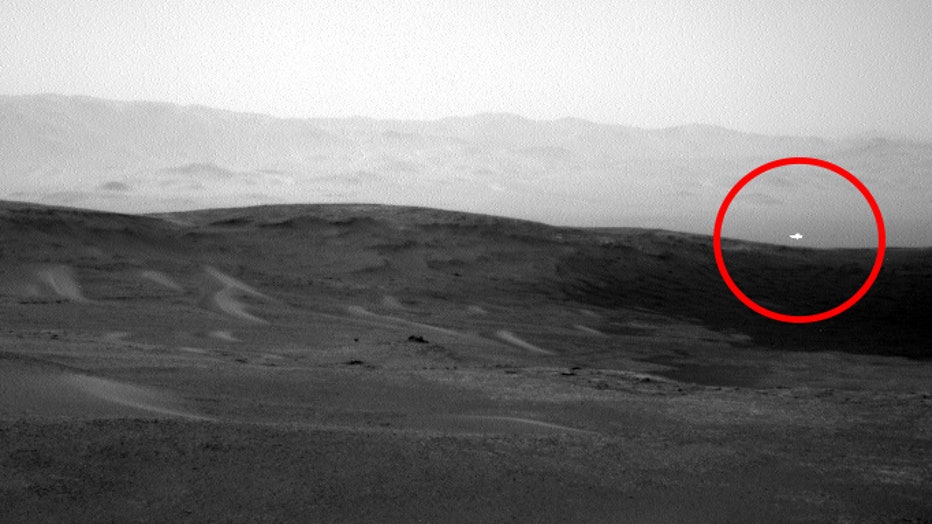NASA’s Curiosity rover captures image of mysterious white light on Mars
PASADENA, Calif. - NASA released a series of images taken by its Curiosity rover, with one photo in particular showing a strange white light on Mars.
The raw black-and-white photo was taken using the rover’s Navcam, a navigational camera that some robotic rovers or spacecrafts use to take wide angle photographs, serving as the rover’s “eye.”
The image was taken at 03:53:59 UTC on June 16, 2019, or Sol 2438. Photos taken almost immediately before and after, at 03:53:46 UTC and 03:54:12 UTC, do not show the mysterious white light.
A NASA spokesperson told Fox News the anomaly is "likely an effect of the Sun" and that "images with effects like this" are seen "pretty routinely."

The image was taken at 03:53:59 UTC on June 16, 2019 by NASA’s Curiosity rover. (Photo credit: NASA/JPL-Caltech)
In 2014, a separate mysterious white light was also spotted by Curiosity on the Red Planet. The light appeared in photos taken by the rover’s “right eye” and did not appear seconds later in images taken by the “left eye.”
Jet Propulson Labratory scientist Dr. Justin Maki told the Huffington Post at the time that he believed the light could be a “glint from a rock surface reflecting the sun.”
The rover, about the size of a small SUV, landed in August 2012 and has since been sending images of Mars’s surface back to Earth. Curiosity's mission is to determine whether Mars is, or ever was, capable of supporting microbial life.
In addition to the strange image released publicly, Curiosity also found the largest amount of methane ever measured during the mission, NASA said. Scientists said the news was exciting because microbial life is an important source of methane on Earth — but methane can also be made by interactions between rocks and water.
Scientists conducted a follow-up experiment and found Monday that the methane levels “sharply decreased” close to the background levels the rover sees normally.
"The methane mystery continues," said Ashwin Vasavada, Curiosity's project scientist at NASA's Jet Propulsion Laboratory in Pasadena, California. "We're more motivated than ever to keep measuring and put our brains together to figure out how methane behaves in the Martian atmosphere."

